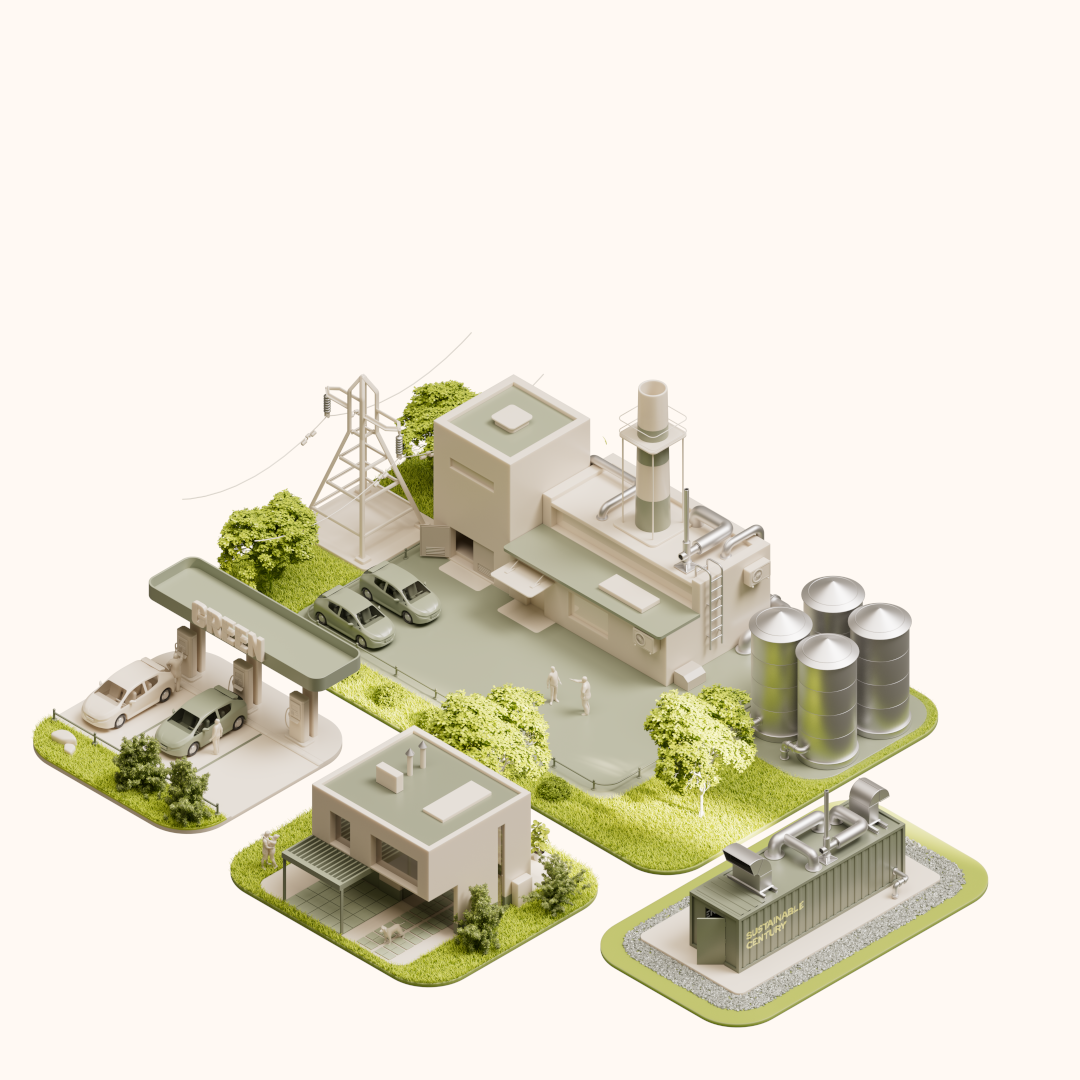Energy - heat and electricity from biochar production
Why pyrolysis energy is a real building block for the future
The energy transition is under pressure: fossil sources must be replaced, grids must be kept stable and the expansion of renewable energies must be decentralized. At the same time, municipalities, industry and agriculture are looking for reliable, climate-friendly heat sources - especially in the low-temperature range.
This is where pyrolysis comes into play - with a decisive advantage: it not only produces biochar as a carbon sink, but also releases usable energy during each cycle. This is due to the exothermic nature of the process: when biomass is heated to 550-800 °C in the absence of air, a thermochemical reaction takes place in which energy is released in the form of heat and gases.
In contrast to classic biomass incineration plants, this produces
No significant particulate matter emissions
A permanent CO₂ reservoir (biochar)
A materially and energetically usable by-product (pyrolysis gas)
Pyrolysis therefore creates a double benefit: It reduces emissions and generates locally available, renewable energy. Ideal for local heating, process heat or CHP systems.
How we harness pyrolysis energy
Our energy strategy is based on the principle of integrated use - i.e. the targeted utilization of the forms of energy generated during the pyrolysis process. These can be divided into three main categories:
Heat (directly from pyrolysis): Pyrolysis itself is exothermic - in other words, it continuously generates usable process heat. This can be fed into heating circuits via heat exchangers, e.g. for local heating networks, industrial processes or agricultural applications.
Pyrolysis gas (secondary energy source): Part of the energy is present in the resulting gas. This can be used directly as fuel gas in special gas burners, used in a CHP unit to generate electricity or stored for mobile applications.
Electricity (via CHP connection): Electrical energy can also be generated by integrating CHP units or ORC modules. This is particularly interesting in island grids or with a high self-consumption rate.
System integration and sector coupling: Our systems are planned on a site-specific basis. We take into account existing infrastructures, process heat requirements, storage solutions and market connections - for maximum efficiency.
What we implement in concrete terms
Exothermic energy generation: Our pyrolysis systems supply heat directly during operation. This is harnessed via heat exchangers and storage tanks - for heating, drying or process heat.
Integration into local heating systems: We integrate our modules into local heating networks or develop new networks together with partners - e.g. for industrial estates, residential areas or farms.
Electricity production using CHP units: Depending on the location, the pyrolysis gas can be used to generate electricity. Particularly advantageous when electricity prices are high or self-sufficiency is required.
CO₂-free process heat for companies: Energy-intensive businesses can be supplied with climate-neutral heat through pyrolysis - for example in food processing, drying or greenhouses.
Cross-sector projects: We develop holistic energy concepts together with municipal utilities, industrial companies or agricultural producers - with a focus on economic efficiency and climate impact.
Certifiable climate performance: The energy generated during pyrolysis is not only green - it is produced using CO₂-negative technology. This generates real climate performance that is documentable and marketable.
Conclusion
Pyrolysis energy is renewable, local and climate-positive. It is generated from residual materials, avoids emissions and supplies people, processes and neighborhoods with heat and electricity.
If you need heat, want to feed in waste heat or generate climate-neutral energy: We develop a concept - tailored to your location.


